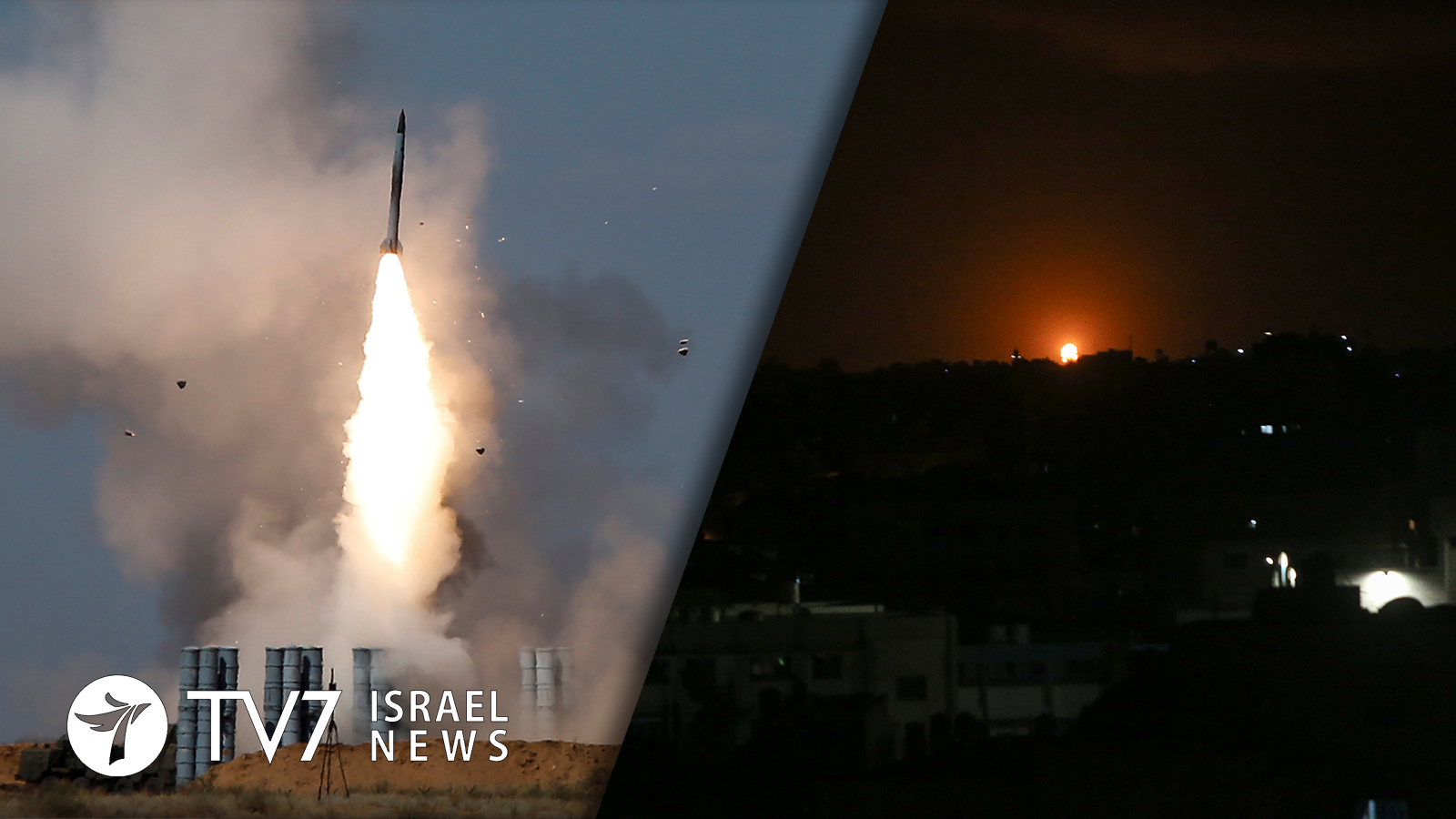The Syrian Armed Forces (SAF) issued a statement claiming that the country’s air defenses intercepted “Israeli aggression” over the capital, Damascus, as part of a heightened campaign against Iranian targets inside the Arab Republic over the past two months.
While state media did not provide details of the alleged Israeli Air Force (IAF) attack, the strikes were reportedly launched from the Golan Heights and Galilee region at targets on the periphery of Damascus, according to the SAF statement.
No mention was made of casualties or damage, but the Syrian army proclaimed that “Our air defenses are continuing to repel the Israeli missile attacks over the skies of the capital” and that most of the missiles had been successfully downed.
According to the Britain-based Syrian Observatory for Human Rights (SOHR), 4 Iran-backed combatants were killed near the Damascus-Beirut highway and 2 in Kisweh in strikes on the SAF Fourth Division close to a highway linking Damascus with Beirut. The SOHR said arms depots in both areas were also hit.
A Syrian military defector also attested that the bombing hit a major army division in the town of Kiswa about 14 km (8.7 miles) south of Damascus in an area where the Iranian proxies are prevalent. Other witnesses reported hearing large explosions on the southern edge of Damascus where local residents say the Iranian-backed fighters are entrenched.
Syrian state media also reported that an explosion was heard in the southern Quneitra Province near the border with Israel overnight last Thursday, after the Alhurra news agency cited an unidentified security source saying a military drone had attacked a weapons convoy as it entered Syria from Iraqi territory earlier in the day.
Western intelligence sources confirm that Iran’s military influence has expanded in Syria in recent years.
Israel has not immediately responded to the allegations, although senior government and military officials have acknowledged an escalating campaign to reverse attempts by the Islamic Republic to establish a permanent presence just over the northern border in Syria.
IDF Chief of Staff Lt. Gen. Aviv Kochavi revealed in an end of year report that the Israeli military activity had “slowed down Iran’s entrenchment in Syria,” successfully striking more than 500 targets in 2020.
The armed Iranian-proxies in Syria, chief among which is the Lebanon-based Shi’ite Hezbollah terror group, are currently a dominant force in vast areas in eastern, southern and northwestern sectors, in addition to several suburbs around Damascus. They also control Lebanese-Syrian border areas.
Israel has conducted many of its biggest strikes yet inside Syria in recent months, focusing largely on the city of Al Bukamal that controls the border checkpoint on the main Baghdad-Damascus highway. Syrian media attributed four separate strikes attributed to the IAF near Al Bukamal and Deir a-Zor in January on Iranian-backed sites throughout Syria within two weeks that the SOHR said killed 57 people at 18 pro-Iranian sites.
The widening military campaign is considered as a “campaign within wars” according to Israeli generals and regional intelligence sources. The operation has received tacit approved by the United States, which backs attempts to block Iran’s intention to alter the balance of power in Syria in its favor. Regional sources agree, saying that the IDF actions have succeeded in gradually eroding Tehran’s extensive military power while avoiding a major outbreak of hostilities.
